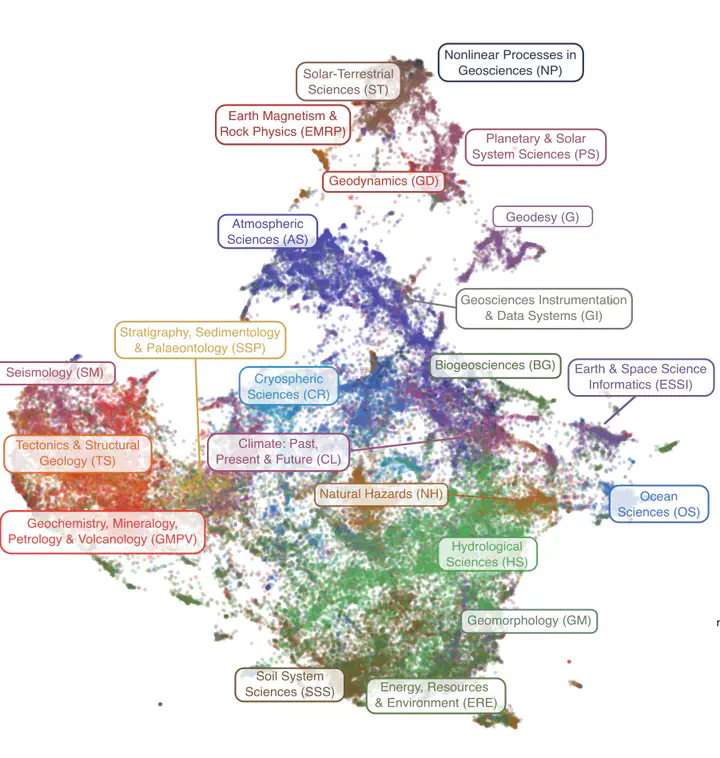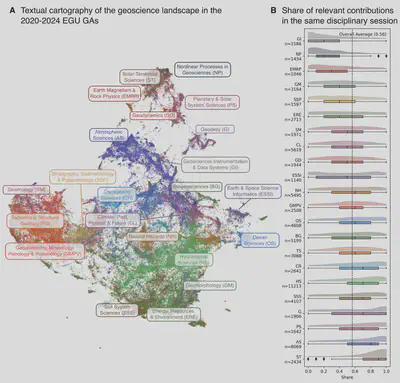Digital tools for recommending actually relevant talks at conferences using deep learning

Attending the European Geoscience Union (EGU) General Assembly for the first time in 2022 was eye-opening—and overwhelming. With more than 15,000 presentations spread across hundreds of sessions, I faced the classic conference conundrum: how do you find the talks that truly matter to your work?
To tackle this, my colleagues and I turned to a familiar toolkit: natural language processing (NLP). Our idea was simple—yet powerful: use NLP models to detect abstracts similar in content to one’s own research. Technically, we applied Sentence Transformers and Cross-Encoders to compute semantic similarity scores between abstracts.
Together with the EGU organizers, we developed two tools based on this approach:
-
🔍 Presentation Recommender:
This Shiny-based app suggests individual presentations based on the similarity of submitted abstracts. A survey-integrated version (built in JavaScript) allowed users to manually rank recommendations, helping us iteratively improve the algorithm. The tool was linked directly from the main EGU abstract site and received very positive feedback. -
🗂️ Session Recommender:
With over 1,000 sessions, choosing where to submit an abstract is daunting. This Python-based app uses live similarity scoring between user abstracts and session descriptions to suggest relevant sessions. More than 5,000 participants used it during EGU 2023, and it was officially endorsed by the conference.
Looking ahead, we plan to:
- Incorporate systematic user feedback to fine-tune recommendation quality.
- Expand coverage to other conferences.
- Develop a professional, open-source software package for easy adoption by conference organizers.
📄 In a recent study, we showed that even within a single discipline (e.g., hydrology), participants miss up to 50% of presentations potentially relevant to them—highlighting the need for better discovery tools at conferences:
EGUsphere Preprint, 2024
